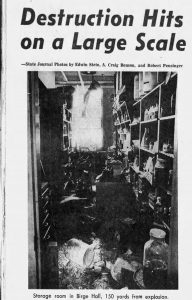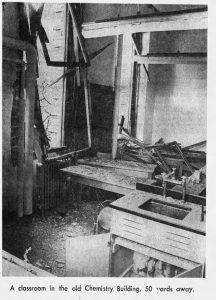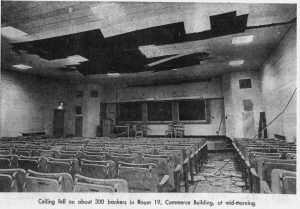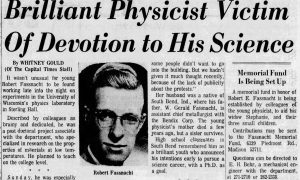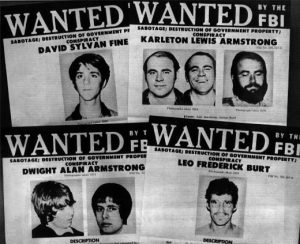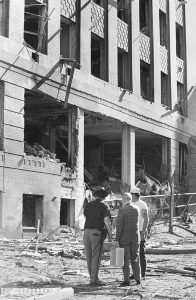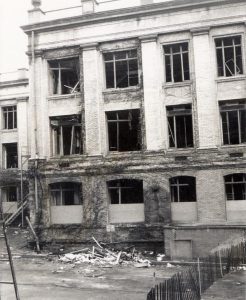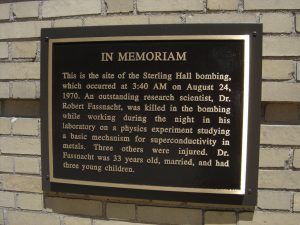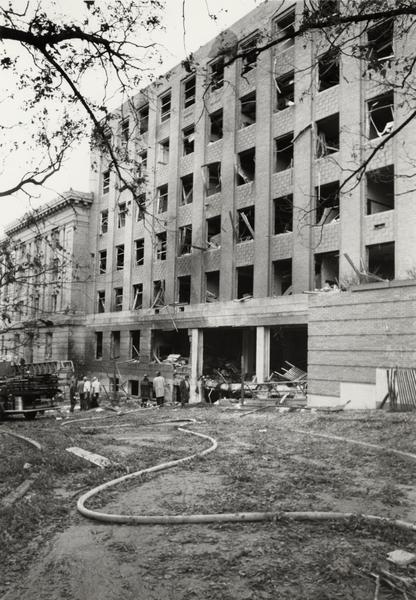
On August 24, 1970, the University of Wisconsin–Madison experienced a devastating act of violence when anti-Vietnam War protesters bombed Sterling Hall. The attackers targeted the Army Mathematics Research Center housed in the building, condemning its involvement in military research that supported the Vietnam War. The explosion caused massive destruction, shattering windows, and damaging nearby buildings. Tragically, Robert Fassnacht, a physics researcher working late in the lab, was killed in the blast, and several others were injured. The attack underscored the intense domestic opposition to the Vietnam War and highlighted the willingness of some activists to resort to extreme measures.
The Sterling Hall bombing remains one of the most notable instances of domestic terrorism in U.S. history, symbolizing the profound divisions and turbulence of the era. It was a stark reminder of the lengths to which some were willing to go in their protest against the war. The bombing caused widespread fear and disruption on campus, affecting both the academic community and the broader public. It raised critical questions about the ethics and effectiveness of violent protest and left a lasting impact on the university and the nation.

